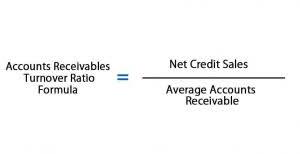
In recent years, FASB and IASB have been working together to converge the two sets of standards, aiming to create a single global financial reporting framework. This collaboration has led to the adoption of several new accounting standards, aligning GAAP and IFRS, and making it easier for companies and investors to compare financial information across borders. GAAP has evolved over the years in response to changes in business practices, market dynamics, and regulatory requirements. The Financial Accounting Standards Board (FASB) continually updates and refines GAAP to ensure its relevance and usefulness in today’s complex financial landscape. Some significant changes include the introduction of new revenue recognition guidelines and lease accounting standards. Proper management of expenses and assets ensures that financial statements reflect an entity’s true financial position and performance.

Accounting Principles: What They Are and How GAAP and IFRS Work
For example, IFRS provides more flexibility for classifying cash flows, whereas GAAP is stricter. With cash-basis accounting, you enter the payment when money changes hands, regardless of when the goods or services change hands. Explore Grocery Store Accounting IFRS and GAAP accounting principles to learn how accounting standardization could improve financial decisions that affect your small business.
Business
- Companies can present certain figures without following GAAP guidelines, as long as they identify them as non-GAAP.
- At no point can a company or financial team choose to ignore or modify any of the regulations.
- GAAP is managed and published by the Financial Accounting Standards Board (FASB), which regularly updates the list of principles and standards.
- Internal Revenue Service rules for tax reporting can differ from GAAP, cash basis accounting, and IFRS.
- For example, if there were significant write-downs, a breakdown of how depreciation was calculated should be provided.
- When analyzing financial statements, GAAP ensures that users can rely on the information provided, as it adheres to a standardized framework.
These principles ensure consistency, accuracy, and transparency in financial reporting across various industries in the United States. Public companies must follow GAAP when preparing their financial statements, which is also widely used in governmental accounting. The fundamentals of GAAP encompass a wide range of accounting rules, standards, and procedures that are relevant to various industries and organizations.
- However, before making any business decision, you should consult a professional who can advise you based on your individual situation.
- Companies must reveal all relevant and material information in their financial statements.
- Companies must adhere to GAAP to maintain transparency in financial reporting and promote standardization of assumptions, terminology, definitions, and methods.
- Generally Accepted Accounting Principles (GAAP) serve as a standardized set of guidelines for companies to follow when preparing and presenting their financial statements.
- With cash-basis accounting, you enter the payment when money changes hands, regardless of when the goods or services change hands.
- Although private companies aren’t required to use FASB standards, many follow them to enhance transparency or secure funding.
Generally Accepted Accounting Principles (GAAP): Definition and Rules
For instance, it gives guidelines for patient revenue recognition in healthcare and rules for nonprofit financial reporting. Publicly traded domestic companies are required to follow GAAP guidelines, but private companies can choose which financial standard to follow. Some companies in the U.S.—particularly those that are traded internationally or see a lot of international business—may use dual reporting (i.e., both methods) when preparing financial statements. It is also possible, though time-consuming, to convert GAAP documents and processes to meet IFRS standards. Whether or not the two systems will ever truly integrate or converge the standards and rules that accountants follow while recording and reporting financial activities remains to be seen, though efforts were made by the U.S.

What Are Accounting Principles?
- These principles apply to both private and public companies in the United States, with all publicly traded companies required to comply with the GAAP standards when reporting their financial position.
- The SEC is responsible for protecting investors by ensuring that public companies provide accurate and consistent financial information.
- GAAP combines authoritative standards set by policy boards and widely accepted methods for recording and reporting accounting information.
- In many other countries, companies are guided by international financial reporting standards (IFRS).
- Each principle is meant to guarantee and support clear, concise and comparable financial reporting.
In conclusion, GAAP plays a vital role in ensuring clear, consistent, and transparent financial reporting for both publicly traded companies and governmental entities. However, gross vs net the specific application of GAAP principles differs between the two, addressing the unique requirements and operations of each entity type. The Financial Accounting Standards Board (FASB) is the organization primarily responsible for developing and maintaining GAAP. FASB issues accounting rules and guidance, known as Accounting Standards Codification (ASC), that form the foundation of GAAP. Their main objective is to establish and improve accounting standards to ensure the usefulness and comparability of financial reports.


